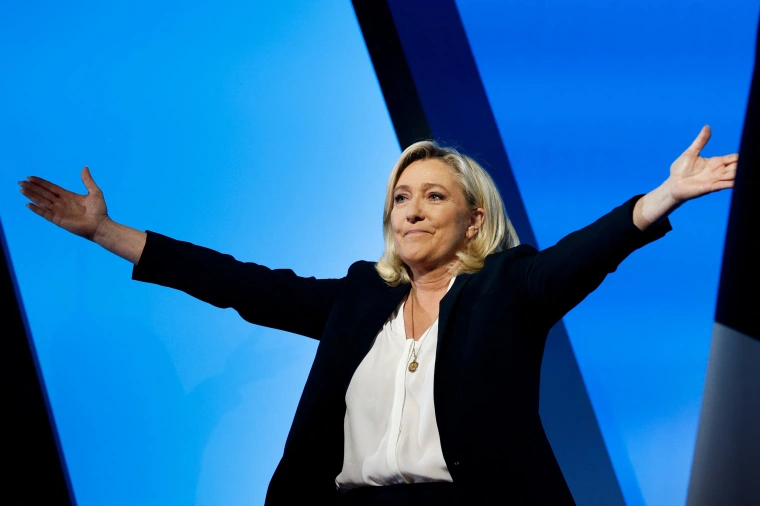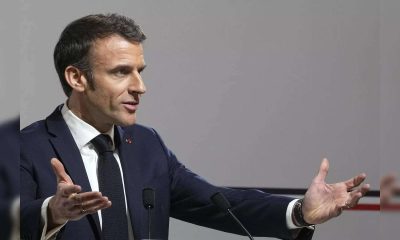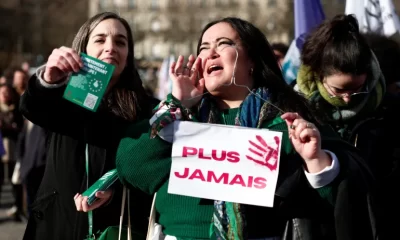NEWS
France: Marine Le Pen a step closer to Power, but at what Cost?

Marine Le Pen’s far-right National Rally (RN) party’s surprising lead in the first round of France’s parliamentary elections underscores a dramatic political shift in France.
The RN’s historic surge, leading with 34% of the vote, has positioned the party on the brink of power like never before. However, this rise raises questions about the potential consequences for France’s political landscape and its place in Europe.
Despite its commanding lead, the RN may still fall short of an absolute majority, suggesting a potential hung parliament.
Read more:
We are a Nuclear power too — France warns Putin
N10M payment scandal rocks Nigeria’s presidency
The Wait is Over: Big Brother Naija season 9 to premiere in July
This scenario could force President Emmanuel Macron into an uneasy cohabitation, appointing a prime minister from an opposition party, a rare and complicated political arrangement. Such a partnership could lead to legislative gridlock, affecting everything from domestic policy to France’s stance on international issues like the war in Ukraine.
Le Pen’s message of caution for the second round reflects the critical nature of the upcoming vote. The RN’s leader, Jordan Bardella, has asserted a hardline stance against governing as a minority, which could push Macron to form a technocratic government or seek alliances with the hard left. This unpredictability is stirring unrest among voters and financial markets alike.
Anti-far-right protests in Paris highlight the societal divisions that the RN’s potential ascent has exacerbated. The unrest serves as a reminder of the deep-seated tensions within French society, tensions that could be further inflamed by the RN’s controversial policies, such as rolling back pension reforms and cutting taxes amidst an economic climate that may demand austerity.
Macron’s snap election gamble, prompted by a heavy defeat in European Parliament elections, has backfired spectacularly, leaving him with the prospect of governing in one of the most challenging political environments of the Fifth Republic. His call for a broad democratic alliance against the RN in the second round underscores the high stakes and the profound implications for France’s future.
The RN’s rise also poses a broader European concern. The party’s anti-EU stance and proposed fiscal policies could not only disrupt France’s relationship with Brussels but also spark financial instability reminiscent of the UK’s brief Liz Truss administration.
With France having a significant budget deficit, the RN’s ambitious spending plans threaten to deepen economic woes, causing alarm among investors and EU officials.
As France heads into the decisive second round of voting, the nation stands at a crossroads. The potential for a far-right government is closer than ever, promising sweeping changes that could reshape the country’s political and economic landscape.
However, this prospect comes with significant risks, including political deadlock, social unrest, and economic instability. The outcome of this election could mark a pivotal moment for France and the broader European project.































